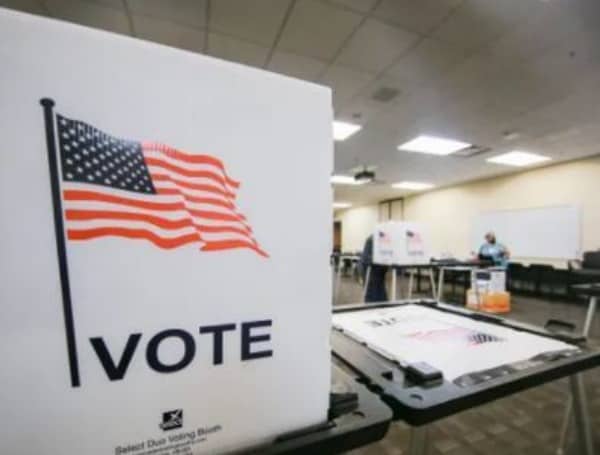Saying he “appears to have a closed mind,” the state has asked a federal judge to exit a case about the constitutionality of a 2023 Florida elections law.
Attorneys for Secretary of State Cord Byrd last week filed a motion seeking the recusal of Chief U.S. District Judge Mark Walker, pointing to parts of a ruling he issued Feb. 8 in a separate court battle about a 2021 elections law.
In that ruling, Walker entered a judgment in favor of the state after the 11th U.S. Circuit Court of Appeals overturned an earlier decision in which he found the 2021 law improperly discriminated against Black voters.
Read: Social Media Bill Sent To Florida Gov. DeSantis
But Walker also wrote that the state “has, with surgical precision, repeatedly changed Florida’s election code to target whichever modality of voting Florida’s Black voters were using at the time. That was not this court’s opinion — it is a fact established by the record in these cases (involving the 2021 law). Even so, following the state of Florida’s appeal, this persistent and pernicious practice of targeting the modalities of voting most used by Florida’s Black voters has apparently received the stamp of approval in this (11th) Circuit.”
Three consolidated lawsuits challenging the 2023 law allege that the state has placed improper restrictions on what are known as “third party” voter-registration organizations. Plaintiffs contend that the organizations play an important role in signing up Black and Hispanic voters.
In the motion for recusal, the state’s attorneys cited parts of the Feb. 8 ruling, such as Walker’s description of a “persistent and pernicious practice” related to Black voters.
Read: Florida Gov. DeSantis To Sign Jeffrey Epstein Grand Jury Bill
“Plaintiffs in these consolidated proceedings must prove that the state of Florida intentionally targeted third-party voter registration organizations because Black voters prefer to use them,” the motion said. “But this court (Walker) has seemingly concluded that the state of Florida engages in discrimination against Black voters. On the discriminatory-intent issue, therefore, this court appears to have a closed mind.”
The motion acknowledged that the “bar for recusal is high,” usually involving such things as comments made by judges to the news media or judges’ relationships.
“But there’s no rule limiting recusal to such instances. The analysis turns on whether a reasonable observer might perceive this court to have a ‘fixed opinion, a closed mind’ on the discriminatory-intent issue,” the motion said, partially quoting a legal precedent.
Walker gave the plaintiffs, which include groups such as the NAACP, the League of Women Voters of Florida and Hispanic Federation, until 5 p.m. Monday to respond to the motion for recusal. Responses had not been posted on court dockets as of Monday morning.
If Walker recuses himself, another judge would take over the case, which is scheduled for trial in April.
The groups and other plaintiffs filed the lawsuits after Gov. Ron DeSantis and the Republican-controlled Legislature last year approved the elections law. The plaintiffs argue, in part, that the law violates First Amendment rights.
Read: Florida Governor Ron DeSantis Deploys More Florida Personnel To Texas Border
In a July ruling, Walker issued a preliminary injunction against two changes in the law. Those changes would prevent non-U.S. citizens from collecting or handling voter-registration applications and make it a felony for voter-registration group workers to keep personal information of voters.
The state has appealed that ruling to the 11th U.S. Circuit Court of Appeals, where it remains pending. While Walker issued a preliminary injunction, that is not a final ruling in the case.
Meanwhile, Walker this month rejected a League of Women Voters challenge to another part of the law that prevents people with certain felony convictions from “collecting or handling” voter-registration applications. Walker ruled the organization did not have legal standing to challenge that part of the law.
Walker, who was appointed to the federal bench by former President Barack Obama, has issued a series of decisions in recent years that have been sharply critical of laws approved by DeSantis and lawmakers. Along with the elections cases, for example, he issued injunctions against a law that restricted the way race-related concepts can be taught at universities and addressed in workplace training — a law that DeSantis dubbed the “Stop WOKE Act.”
Help support the Tampa Free Press by making any small donation by clicking here.
Android Users, Click To Download The Tampa Free Press App And Never Miss A Story. Follow Us On Facebook and Twitter. Sign up for our free newsletter.

